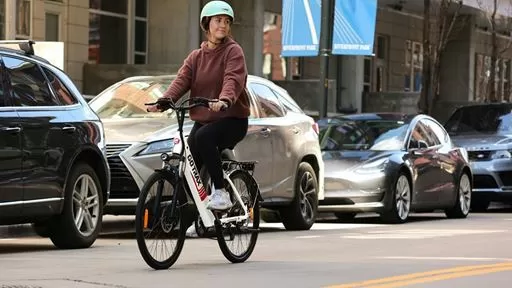As urban populations continue to grow, cities are facing increasing challenges when it comes to transportation and its impact on the environment. However, there is a glimmer of hope on the horizon as more and more cities are embracing the use of alternative modes of transportation. This shift is not only improving congestion and reducing the climate impact, but it is also driving technological advancements in the transportation industry.
One of the main factors contributing to the replacement of cars in cities is the rise of ride-sharing services. These services, such as Uber and Lyft, have revolutionized the way people move around in cities. They provide a convenient and cost-effective alternative to owning a car, especially for those who live in densely populated areas where parking is a challenge. As a result, more and more people are opting to use these services instead of owning a car, leading to a decrease in the number of cars on the road.
In addition to ride-sharing services, the popularity of electric vehicles (EVs) is also on the rise. EVs produce zero emissions, making them an environmentally-friendly option for city transportation. Many cities around the world are implementing initiatives to encourage the use of EVs, such as providing charging stations and offering incentives for EV owners. As a result, the number of EVs on the road is steadily increasing, leading to a reduction in carbon emissions and air pollution.
Moreover, cities are also investing in public transportation systems to reduce the number of cars on the road. This includes expanding existing public transportation networks and introducing new modes of transportation such as light rail and bus rapid transit. These initiatives not only help to ease congestion but also provide a more sustainable mode of transportation for city dwellers.
The replacement of cars in cities is not only beneficial for reducing congestion and improving air quality, but it also has a positive impact on the climate. Cars are a major contributor to greenhouse gas emissions, which contribute to climate change. By reducing the number of cars on the road, cities are taking a significant step towards reducing their carbon footprint and mitigating the effects of climate change.
Furthermore, the shift towards alternative modes of transportation is driving technological advancements in the transportation industry. As the demand for ride-sharing services and EVs increases, companies are investing in research and development to improve their services and products. This has led to the development of more efficient and eco-friendly vehicles and transportation systems. For example, electric and autonomous vehicles are becoming more advanced and accessible, paving the way for a future of sustainable and efficient transportation.
The replacement of cars in cities is not without its challenges. Some may argue that it is not feasible for everyone to rely on public transportation or ride-sharing services, especially in areas with limited access to these options. However, cities are finding innovative solutions to address these challenges. For instance, some cities are implementing bike-sharing programs, where people can rent bikes to get around the city. This not only provides an alternative mode of transportation but also promotes a healthier lifestyle.
In conclusion, the replacement of cars in cities is a positive trend that is gaining momentum. It is not only improving congestion and reducing the climate impact, but it is also driving technological advancements in the transportation industry. As more and more cities embrace alternative modes of transportation, we can look forward to a future where cities are greener, more efficient, and less congested. It is time for us to embrace this change and take a step towards a more sustainable future.



